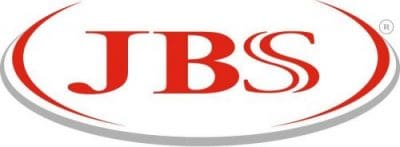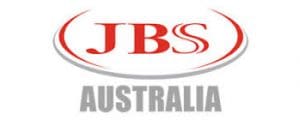 GLOBAL animal protein giant JBS has reported a net revenue across its diverse operations in US$ terms of a record $72.6 billion, up 6.9pc on the previous year.
GLOBAL animal protein giant JBS has reported a net revenue across its diverse operations in US$ terms of a record $72.6 billion, up 6.9pc on the previous year.
Adjusted pre-tax profit across all units was US$6.7 billion (R$34.6b in Brazilian currency), down 24.3pc.
However, profit for the year ended 31 December varied wildly across regions, depending on drought and other factors. The company’s North American beef and pork divisions were back 58 percent and 23pc respectively on the previous year, while Australia was up 17pc (partly due to inclusions of new aquaculture and pork businesses), South America up 4pc, and the company’s value-added division up 19pc.
“We observe that the challenging market conditions that impacted our performance in the fourth quarter of 2022 continue into the first quarter of 2023, which is traditionally a weaker period for the global protein industry,” JBS global chief executive Gilberto Tomazoni told shareholders.
“In addition to margin compression in US beef, high inflation in important markets is weakening consumption, causing an imbalance between supply and demand. At the same time, we are facing persistent pressure on production costs,” he said.
Despite the short-term scenario, JBS said it had confidence in the medium and long-term results based on its geographical and protein diversification strategy.

JBS global CEO Gilberto Tomazoni
“We continue to invest in expanding our business, committed to our strategy of building strong brands and adding value,” Mr Tomazoni said.
In the past two years, JBS has diversified its operations with the acquisition of seven companies, enabling its entry into the farmed salmon market (Huon in Australia) and cultivated proteins (Biotech Foods), expansion in plant-based foods in Europe (Vivera) and entry into the Australian pork business (Rivalea).
It has also strengthened its position with high-value products in the European and American markets (Sunnyvalley, Pilgrim’s Food Masters and King’s Group), totaling US$2.2 billion in asset purchases.
Australian operation net revenue up 18.3pc
 In JBS’s Australian operations (principal business beef, lamb and pork processing, Huon Aquaculture salmon and Primo smallgoods), in US$, net revenue for the full year was US$6.3 billion (+18.3pc, principally due to new income from Rivalea and Huon). Adjusted EBITDA was US$337.1m, with an EBITDA margin of 5.3pc.
In JBS’s Australian operations (principal business beef, lamb and pork processing, Huon Aquaculture salmon and Primo smallgoods), in US$, net revenue for the full year was US$6.3 billion (+18.3pc, principally due to new income from Rivalea and Huon). Adjusted EBITDA was US$337.1m, with an EBITDA margin of 5.3pc.
The combined reporting for all Australian divisions (livestock processing, aquaculture, smallgoods) makes it difficult to distinguish specific beef and lamb performance.
Livestock costs represented 78.2pc of JBS Australia’s overall Costs of Goods Sold last year, with labour another 11.8pc, and processing (including other ingredients and packaging) 10pc.
Overall the Australian division’s sales in the domestic Australian market, which represented 47pc of its total revenue in the fourth quarter (Huon and Rivalea have a strong focus on the domestic market) were 23pc higher than in the same quarter the previous year, driven by the recovery of demand in the retail and food service channels.
In the export market, Australian division net revenue increased by 4pc compared to 4Q21, mainly explained by the increase in volumes sold. For the year, top line in dollar grew 18.3pv driven by existing businesses which posted a 7.1pv year-on-year increase, and an incremental increase coming from the acquisition of Huon and Rivalea.
JBS Australia’s beef business net revenue was 4pc lower in the fourth quarter compared with the previous year, given the reduction in average prices due to weaker demand, JBS said.
Australian beef’s EBITDA margin was pressured due to live cattle prices, which remained at a high level for most of the quarter, as a result of improved seasonal conditions, which reduced the availability of cattle for slaughter.
During the year, animal costs remained high as a result of herd rebuilding and the prolonged favourable seasonal conditions in cattle-producing regions.
US beef division showing effects of drought
In line with the US drought cycle and greatly expanded beef production during the 2022 year, JBS reported its US beef operations with net revenue of US$22.07b, up 2.9pc on the previous year, and adjusted EBITDA of US$1.93b, down a whopping 58pc.
“The normalisation of margins throughout 2022 is linked to changes in market conditions, as a result of the reduction in the US cattle herd and the greater sale of cows throughout the year,” Mr Tomazoni said.
“Thus, greater availability of cattle was generated in the short term, but this already pointed to a reduction in the number of cattle to come. In this scenario, according to the USDA, US live cattle prices remained at higher levels, growing 16pc year-on-year in the fourth quarter and 18pc year-on-year in 2022, to US$152/cwt and US$144/cwt, respectively.”
Another consequence of this movement, also according to figures released by the USDA, was that US wholesale beef prices dropped 9pc in the fourth quarter and 6pc year-on-year in 2022.
In 2022, US beef exports continued to grow, up 3.2pc, and prices were +6.4pc year-on-year, according to the USDA.
“The company has managed, with great success, to direct US beef volumes to the export channel, becoming increasingly relevant for results,” Mr Tomazoni said.
“Therefore, although 2022 was marked by the beginning of a cycle of greater restriction of US animals available for slaughter, JBS continues to focus on improving operational efficiency, increasing the share of higher value-added products in its portfolio, as well as global distribution of products, mainly through our main commercial partners.”

Profiting from farmers’ pain once again. Limited restocking competition from growers or feed lots in saleyards. Meat buyers are setting their own prices….as normal. ACCC and the government need to take a serious look at the lack of competition in the market from buyers to processors.